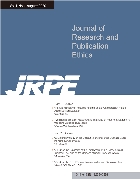- 권한신청
- E-ISSN2733-7146
- KCI Candidate
Ethical Issues on Environmental Health Study
Abstract
Purpose: Adequate public input and participation in environmental health research must be provided to ensure accurate results from studies involving human exposure to potentially hazardous substances. By addressing these ethical issues associated with environmental health research, this study can help reduce risks for individuals participating in studies and whole communities affected by their impactful findings. Research design, data and methodology: The current research should have followed the rule of qualitative textual research, searching and exploring the adequate prior resources such as books and peer-reviewed journal articles so that the current author could screen proper previous works which are acceptable for the content analysis. Results: The current research has figured out four ethical issues to improve environmental health study as follows: (1) Lack of Guidance for Collecting and Utilizing Data Ethically, (2) Insufficient Consideration Is Given to Vulnerable Populations When Conducting Studies, (3) Unclear Standards Exist for Protecting the Privacy Of Participant's Personal Information, and (4) Conducting Socially and Religiously Acceptable Research in Various Communities. Conclusions: This research concludes that future researchers should consider implementing anonymization techniques where possible so that findings are still accessible, but the risk posed by disclosing identifying information remains minimized during the analysis/publication stages.
- keywords
- Environmental Health, Research Ethics, Green Behavior
- 다운로드 수
- 조회수
- 0KCI 피인용수
- 0WOS 피인용수














